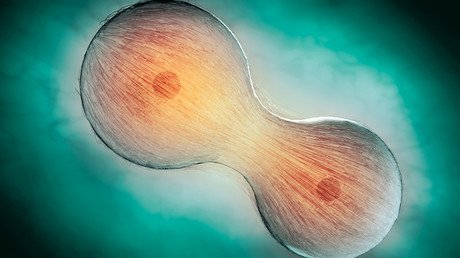Life after death? Human genes ‘continue to function after we die’

Cells in the body continue to function for a period after death, new research claims, with some genes even becoming more active when an individual shuffles off this mortal coil.
Scientists hope that this new discovery will help forensic scientists more accurately pinpoint the time of a person’s death. An international team examined 36 different types of tissue from 540 corpses to come to their conclusion.
Human genes and their activity are defined by two types of code, DNA and RNA. Essentially, DNA is a set of instructions, while RNA reads the instructions and translates them into actions and bodily functions. This new study has found that RNA continues to transcribe the DNA’s instructions even after the moment of death.
‘Like magic’: Scientists find way to make old human cells young again https://t.co/df5DjoY6UA
— RT UK (@RTUKnews) November 12, 2017
“There is a reaction by the cells to the death of the individual. We see some pathways, some genes, that are activated and this means that sometime after death there is still some activity at the level of transcription,” study lead researcher Roderic Guigó told the BBC.
This behavior is still puzzling scientists, but Guigó offers a possible explanation: “I would guess that one of the major changes is due to the cessation of flow of blood, therefore I would say probably the main environmental change is hypoxia, the lack of oxygen, but I don't have the proof for this.”
The team, whose research is published in the journal Nature Communications, believe that understanding the changes in RNA transcription will be useful for forensic scientists and have even developed software capable of analyzing gene patterns to more accurately predict a person's time of death, though Guigo says it’s not quite field ready just yet.
If you like this story, share it with a friend!














